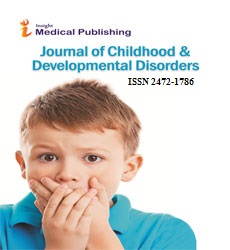Abstract
ADHD and the Generalizability of Treatment: A Survey of Community Professionals
Objective: The prevalence of ADHD among youth necessitates delivery of Evidence-Based Treatments (EBTs), but limited treatment generalizability to varied settings is a significant barrier. Disseminating knowledge and training to clinicians can assist with maintaining clinical gains for providers and continued improvement for youth with ADHD. The aim of this study is to explore how continued education and training on ADHD affects clinician’s understanding, barriers, and perceived ability to generalize treatment results across multiple settings.
Methods: Participants (N=70) were recruited from an ADHD conference at Loma Linda University Behavioral Medicine Center and administered pre and post surveys. Paired samples t-tests were used to evaluate pre and post conference responses.
Result: Results for 6 out of the 9 domains demonstrated statistical significance on post surveys indicating that the conference successfully improved clinician’s perceived ability to implement and generalize treatments to these settings; however, did not improve perceived barriers.
Conclusion: Continuing education and training can increase professionals’ knowledge and confidence of service delivery for ADHD and generalization effects throughout various treatment settings potentially leading to improved patient care for this vulnerable population.
Author(s): Alexandra V Moreland, Ara Anspikian, Sydney Young, Denise Tran, Andrew Minoru Fukuda, Harinder Kaur Dhillon, Bhaktidevi M Rawal, Jenae Torres, Miguel Serrano Illan and Carvy Floyd Luceno
Abstract | Full-Text | PDF
Share this

Google scholar citation report
Citations : 504
Journal of Childhood & Developmental Disorders received 504 citations as per google scholar report
Abstracted/Indexed in
- Google Scholar
- China National Knowledge Infrastructure (CNKI)
- Directory of Research Journal Indexing (DRJI)
- WorldCat
- Publons
- Geneva Foundation for Medical Education and Research
- Secret Search Engine Labs
- Euro Pub
Open Access Journals
- Aquaculture & Veterinary Science
- Chemistry & Chemical Sciences
- Clinical Sciences
- Engineering
- General Science
- Genetics & Molecular Biology
- Health Care & Nursing
- Immunology & Microbiology
- Materials Science
- Mathematics & Physics
- Medical Sciences
- Neurology & Psychiatry
- Oncology & Cancer Science
- Pharmaceutical Sciences

